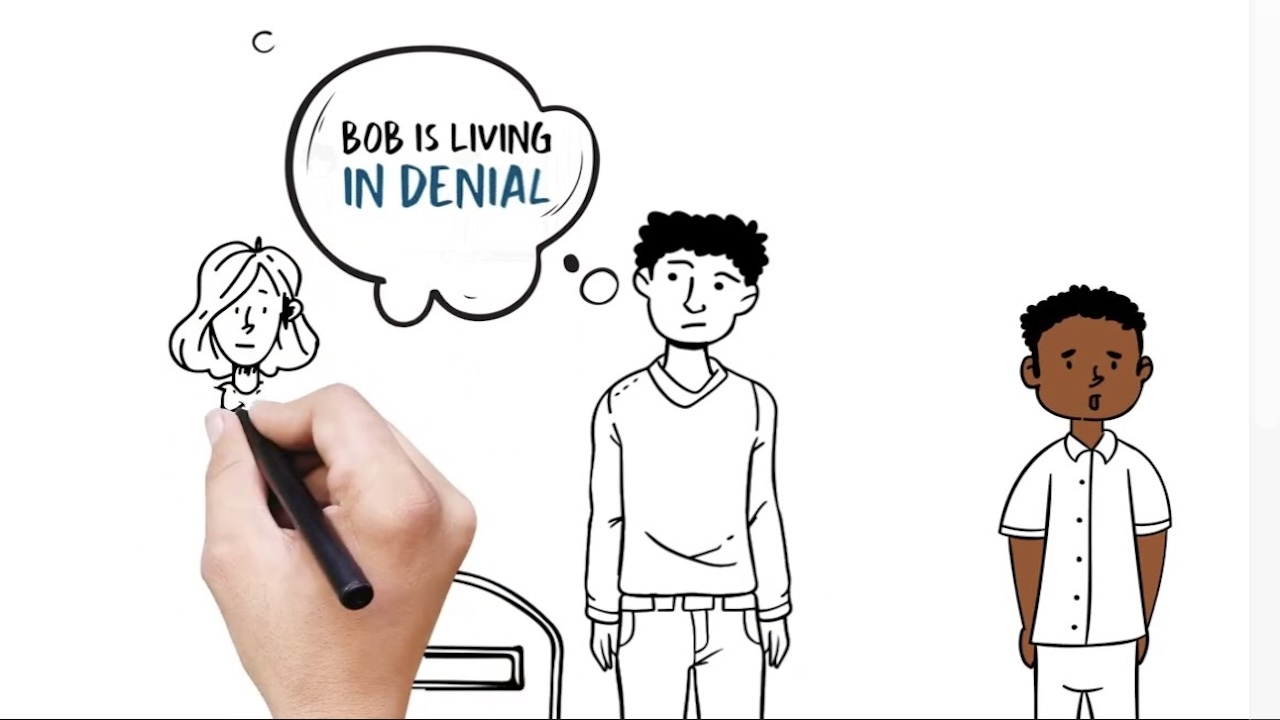It can’t be said too often: substance use disorder is a disease. Yet unlike nearly all other diseases, it’s still often treated as a moral failure, or even a lifestyle choice. This short video illustrates this double standard in the starkest terms. It reminds us that showing care, commitment, and understanding to a Loved One with SUD is not just natural, but also the foundation for helping them at all.
A picture may be worth a thousand words, but in this case, words and pictures flow together in seamless harmony. This simple animation walks us through two versions of a couple (Bob and Jill) facing a medical crisis. In the first scenario, Jill has cancer. In the second, she’s facing a relapse with alcohol and heroin.
In both cases, the story follows Bob’s efforts to support his spouse—and crucially, the different reactions and messages he receives from those around him about his actions. In the cancer scenario, he’s applauded for his tireless work and commitment. But when his wife is using substances, the response is very different. Bob is viewed as “enabling.” He is told that his behavior is one of “codependence” and that he lacks healthy boundaries. He’s encouraged to practice “tough love,” and to detach himself from her struggle.
The contradictions could almost be laughable (is one of these Jills a gangster?), if the real-world consequences did not do so much harm. Watch the video. In less than four minutes, it will remind you why loving engagement, not harsh judgments or “tough love,” is the best way to help.
Click below to watch this relative and informative video developed and produced by the Boston Medical Center (BMC) Grayken Center for Addiction Training and Technical Assistance (TTA).



